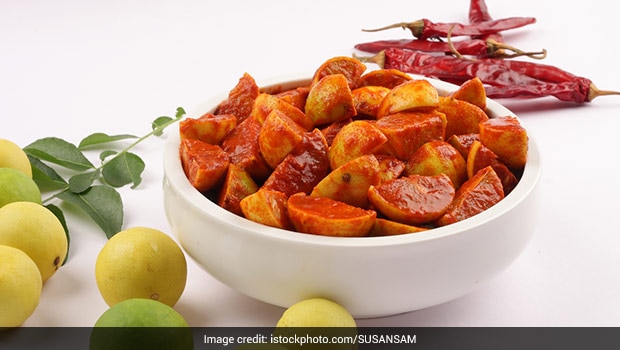A healthy human body requires about 8 gms of salt in a day.
Salt, also known as ‘Namak’ in India, is one of the kitchen essentials without which it is impossible to hit the right flavour note. Salt is a mineral composed primarily of sodium chloride, which if not taken in the right amounts will do more harm than good to your body; therefore, the right quantity and quality of salt are extremely important for your good health. Common salt is a refined version of salt often known as table salt, which is fortified with iodine. One should consume unrefinedsalt because it has all traced minerals like rock salt or Himalayan pink salt. A healthy human body requires about 8 gms of salt in a day which is about one and a half a teaspoon on an average, but in India people tend to consume approximately 10-12 gms in a single day.
Here Are 5 Effective Ways To Reduce Salt Intake In Your Day To Day Diet:
(Also Read: Ideal Salt Intake For Your Age And Condition – Expert Reveals)
1. Avoid Processed Food/Sauces
Nowadays, it is so easy for us to just get a ready-to-eat packed meal from the market and just heat it at home. These purchases are usually impulsive or out of cravings where we conveniently avoid reading the quantities of salt mentioned. These food products add unhealthy levels of salt to make it taste better which is immensely harmful to us. Therefore, avoid buying these ready-to-eat processed food meals and try munching on healthier options like fruits, nuts and seeds.

Avoid buying these ready-to-eat processed food meals.
2. Do Not Sprinkle Salt After The Food Is Cooked
We all have heard about not sprinkling salt additionally in our meals but sometimes we tend to circumvent it and add salt, just so our food tastes better. Do you know the reason why it’s advised to avoid adding salt after the food is cooked? It is said because once the salt is cooked its iron structure changes and becomes easier for our bodies to digest it, but in case we consume uncooked salt, the digestion is slower, further causes high blood pressure, water retention, and a high risk of heart diseases.

In case we consume uncooked salt, the digestion is slower, further causes high blood pressure.
(Also Read: Salt: How Good Or Bad Is It? Expert Reveals (Watch))
3. Switch To Pickles, Chutneys And, Papads In Moderation
Excess of anything is harmful, if not then now is the time to let our desi culture come to rescue. Here is a simple easy trick to reduce the salt intake by adding less salt in our food and adding some siders like pickles/chutneys or even papads. And pickles make the food taste better but spicy pickles do have a lot of sodium and trans-fat too; therefore, practice moderation.

Pickles make the food taste better but spicy pickles do have a lot of sodium and trans-fat too.
4. Use Seasonings And Herbs
Herbs are a perfect dressing for your food. It’s been a great kitchen hack to use less salt and more herbs in your dishes. They not only add flavour but also make our food healthier. Herbs help to prevent high blood pressure and their anti-inflammatory properties help in boosting our immunity
5. Consume More Fruits And Vegetables That Have Less Sodium
It’s important to be aware of what you eat to understand if it’s good for the body or not. There is no doubt that fruits and vegetables are healthy; however, one should know which fruits and vegetables to consume; meaning if they suit your body type or not. Fruits like beets (red and gold), vegetables like spinach, carrots to name a few have high sodium content, thus should be consumed in moderation.

One should know which fruits and vegetables to consume.
All good things take time, so will your taste buds to adjust to less salty food, and once this happens, you will see visible, positive changes in your health. Salt is not our enemy, its quantity is. Make sure the quantity of your salt intake is measured and healthy for your body. Small changes like switching to fresh food from processed food, checking the nutrition value before buying anything, consulting a dietician will bring positive changes in your lives.
About Author: Ritu Khaneja is a clinical nutritionist and dietitian, and is the founder of a wellness centre, RightKcalories.
Promoted
Disclaimer: The opinions expressed within this article are the personal opinions of the author. NDTV is not responsible for the accuracy, completeness, suitability, or validity of any information on this article. All information is provided on an as-is basis. The information, facts or opinions appearing in the article do not reflect the views of NDTV and NDTV does not assume any responsibility or liability for the same.




